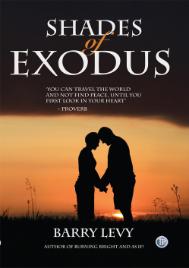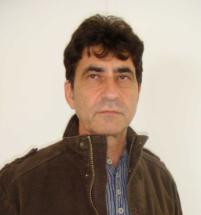New book talks about a land of limbo
Published on 18 August, 2011
While many South African immigrants have come to Australia with big ideas of disconnecting themselves from their volatile home country to embrace a new nation, many find themselves in a world of limbo - neither belonging here or there...
This is the theme of a new book by CQUniversity alumnus and former award-winning journalist Barry Levy titled Shades of Exodus.
 Levy says that the consensus of opinion from ex-pat South Africans is that they should never go back to that place where the destruction of apartheid seems to have brought with it only more terrible problems rather than democracy and freedom of opportunity.
Levy says that the consensus of opinion from ex-pat South Africans is that they should never go back to that place where the destruction of apartheid seems to have brought with it only more terrible problems rather than democracy and freedom of opportunity.
So why would David Levinrad, the main character in Levy's latest novel, turn his back on the safety and security that Australia affords to head back to the uncertainty of Africa?
Maybe it's because Levinrad believes he has discovered the true meaning of the words ‘roots', ‘soul' and ‘loss'.
This overarching theme of displacement in the book, is one many migrants feel, and mirrors much of Levy's own experiences. In fact, one could be mislead into thinking that Shades of Exodus is non-fiction and somewhat biographical.
As a young South African journalist in the 1970s, Levy witnessed discrimination against his country's black population and decided to leave South Africa with his young family in 1984.
He always planned to return home when apartheid ended, but by that time his Australian wife and South African-born children were entrenched in Brisbane life and even Levy was beginning to fit in with the Aussie way of life. It seemed unfair to uproot his family who by now saw themselves as 'fully Australian'.
He believes being a student for much of those early years was a huge advantage.
"Going to a regional university such as CQUniversity was a tremendous help. People at regional institutions are friendlier, and maybe it's because of the smaller class sizes, they are much more willing to engage than their city fellows."
However, after the ‘honeymoon period', Levy recalls life getting more complicated and he began to really notice the differences between Australia and his home country of South Africa.
"After four years of university, I found the Australian workplace pretty harsh in terms of its top-down management style; quite different than my experience in South Africa where the management class was far more friendly and willing to engage with ordinary workers."
Levy says even on a social level Australians were hard to connect with.
"After drinks at the pub on Friday, you may as well say goodbye till Monday. This can be devastating for new migrants who are looking to make new friends and be part of their new community. This is probably the reason why most new migrants tend to stick to themselves."
Despite this, Australia provides immigrants with great opportunities; the biggest could be said to be safety. As one character in Shades of Exodus says: ‘You know what I like best about being here ... having no burglar bars on my windows.'
Levy says, "For most migrants from countries with turbulent backgrounds, it is the most amazing thing to walk safely in the streets".
"But, in truth, for me the reality is this: When you leave your home country, you actually lose two countries. Not only do you lose your home country, but you never really gain the new one either."

Author Barry LevyThis is an epidemic amongst many immigrants and there seems to be no easy solution. According to Levy, his book acts as a sort of warning to those thinking about immigrating.
"The book lets people know that the grass is greener on the other side, but the greenness is like colour-dye, with less heart, less soul, and less spiritual connectedness than the original."
Levy worked in the print media in South Africa from 1974, reporting for the Sunday Express, Sunday Times and Rand Daily Mail. He was also the managing editor of Drum magazine for two years before coming to Australia. The magazine had a mainly black readership of around one and half million and was recently the subject of an international film called Drum.
After coming to Australia, Levy worked for the Daily Sun as a sub editor, before going to CQUniversity to study an Arts degree in literature, history and communications.
Since 1996 he has been the publications officer for the Queensland Tertiary Admissions Centre (QTAC).
Shades of Exodus is available through the CQUniversity Bookshop or can be ordered from all bookshops or directly from publisher Interactive Press. RRP $33.
You can meet Barry Levy this Friday in Rockhampton at Another Story, 2b Denham Street, from 6pm to 8pm, where he will be reading from Shades of Exodus. This event is FREE but bookings are essential. 4921 4322

